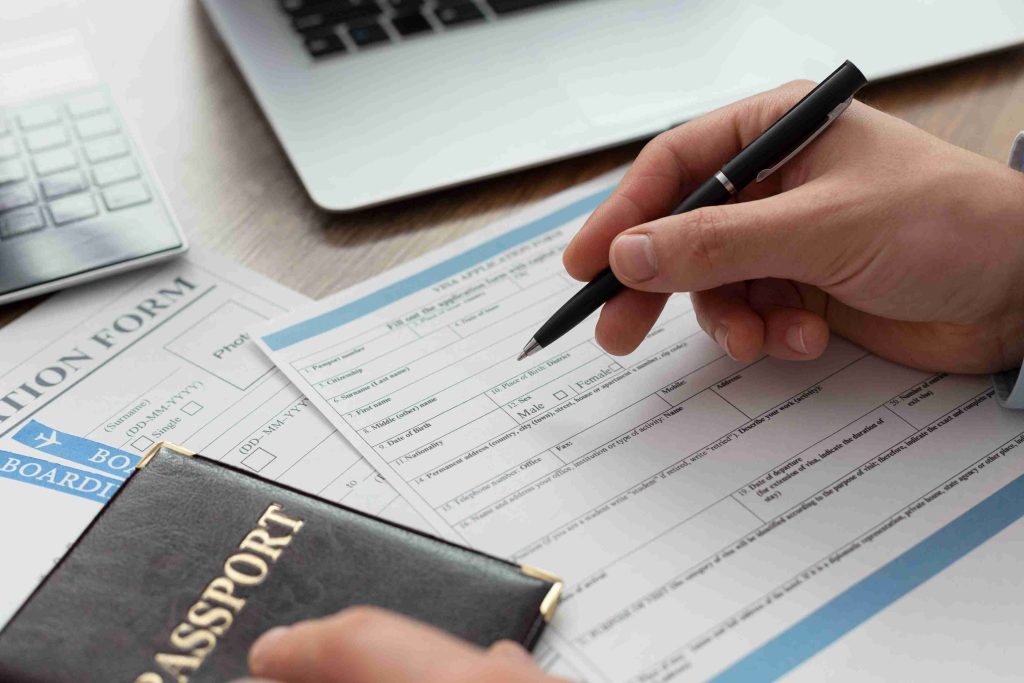When traveling internationally, not all journeys are direct from your departure country to your destination. Sometimes, your flight may require you to stop over in another country before reaching your final destination. In these cases, depending on the country you’re transiting through and your nationality, you might need a transit visa.
While the term may sound straightforward, many travelers are unsure when it is required, how to apply, and what rules apply. Understanding the details of transit visas can save you from denied boarding, unexpected expenses, or even being stranded at an airport.
What Is a Transit Visa?

A transit visa is a short-term visa issued by a country you pass through on your way to another destination. It allows you to enter or pass through the country for a limited time, usually ranging from a few hours to a few days, depending on the rules.
Transit visas are often required when:
- You have a layover in a country before reaching your destination.
- You change airports in a city.
- You leave the international transit area at the airport during a layover.
- You take multiple flights with separate tickets, requiring re-check-in at an intermediate airport.
Also read: Bali Property Investment Guide: What You Need to Know in 2025
Types of Transit Visas
Although specific names and rules vary by country, most transit visas fall into these main categories:
1. Airport Transit Visa (ATV)
- Allows you to stay within the international transit zone of the airport.
- You cannot leave the airport.
- Typically valid for a very short duration (e.g., less than 24 hours).
- Common in Schengen countries for certain nationalities.
2. Short-Term Transit Visa
- Allows you to leave the airport and enter the city or country for a short time.
- Validity ranges from 1 day to 5 days depending on the country.
- Useful if you have long layovers and want to explore.
3. Multiple Transit Visa
- Required if you will transit through the same country more than once on a single trip.
- Common for round-trip flights passing through a hub.

When Do You Need a Transit Visa?
Transit visa requirements depend on:
- Your nationality – Some passports require transit visas even if you remain in the airport.
- The country you are transiting through – Rules differ greatly between nations.
- Your transit duration – Longer layovers increase the likelihood of needing a visa.
- Whether you leave the airport – Staying in the international zone may not require a visa, while exiting often does.
- Type of flight ticket – Separate tickets may require clearing immigration to re-check in.
Examples:
- Schengen Area: Some nationalities need an Airport Transit Visa just to change planes in France, Germany, or Spain.
- USA: Almost all travelers transiting through the U.S. need a valid visa (such as a C-1 Transit Visa) or ESTA authorization.
- UK: Some passengers need a Direct Airside Transit Visa (DATV) if their layover is in the UK and they are not entering the country.
Documents Required for a Transit Visa
While requirements vary, most countries request:
- Valid passport (with at least 6 months validity)
- Confirmed onward ticket to the next destination
- Valid visa for the final destination (if required)
- Completed visa application form
- Passport-sized photos (as per country specifications)
- Proof of sufficient funds (for longer layovers outside the airport)
- Travel insurance (some countries make this mandatory)
How to Apply for a Transit Visa
- Check Requirements Early
Visit the official embassy or consulate website of the transit country to confirm the rules for your nationality. - Gather Required Documents
Prepare all mandatory documents in advance. - Submit the Application
Applications can be done online (eVisa) or at the embassy/consulate. Some airports also offer visa-on-arrival for short transits. - Pay the Fee
Fees vary widely, from free of charge to over USD 100, depending on the country. - Wait for Processing
Processing times may range from instant approval (online) to several weeks.
Transit Visa Fees
Here are examples of typical costs (as of 2025):
- Schengen Airport Transit Visa: Around €60
- U.S. C-1 Transit Visa: USD $185
- India Transit Visa: USD $15–25
- Australia Transit Visa (subclass 771): Free
Tips for Smooth Transit Visa Approval
- Double-check if you really need it – Many travelers mistakenly apply when they don’t.
- Apply early – Don’t leave it to the last week before departure.
- Keep all documents handy – Immigration officers may request proof of onward travel.
- Beware of airport changes – Switching between airports may require passing immigration.
- Avoid separate tickets when possible – Single-ticket journeys usually simplify transit.
Countries That Commonly Require Transit Visas
While not exhaustive, these countries are known for having strict transit visa policies for certain travelers:
- United States
- United Kingdom
- Canada
- Australia
- China
- Schengen Area countries (France, Germany, Netherlands, Spain, etc.)
Transit Visa Exemptions
Some travelers can transit without a visa if:
- They remain in the airport’s international transit zone.
- Their layover is under a set number of hours (often 8–24 hours).
- They hold certain passports or visas (e.g., U.S., Canada, Schengen, Japan).
- They are on a non-stop connection between two international flights without changing terminals.
Also read: What Is Bali Known For? Culture, Nature, and Adventure Awaits
Consequences of Not Having a Required Transit Visa
Failing to have the proper transit visa can lead to:
- Being denied boarding at your departure airport.
- Paying extra for emergency visa processing (if available).
- Having to rebook flights at your own cost.
- In worst cases, being refused entry into the transit country and sent back.
Conclusion
A transit visa might seem like a minor detail in your travel plan, but it can make the difference between a smooth journey and a travel disaster. Requirements vary widely depending on your nationality, route, and the country you are passing through. By researching early, gathering the right documents, and understanding the rules, you can ensure your transit is hassle-free and focus on enjoying your trip.
For international travelers, preparation is always key—especially when it comes to visas.

Rafini
Rafini is a seasoned marketing sales expert with over 15 years of experience in the hospitality industry, specializing in commercial renovation in Bali. Having honed her skills at renowned establishments like Accor and Anantara, she possesses a deep understanding of client needs and market dynamics.
Currently serving as a Regional Manager, Rafini excels in driving sales strategies and fostering strong relationships to enhance brand visibility and profitability across her region.





